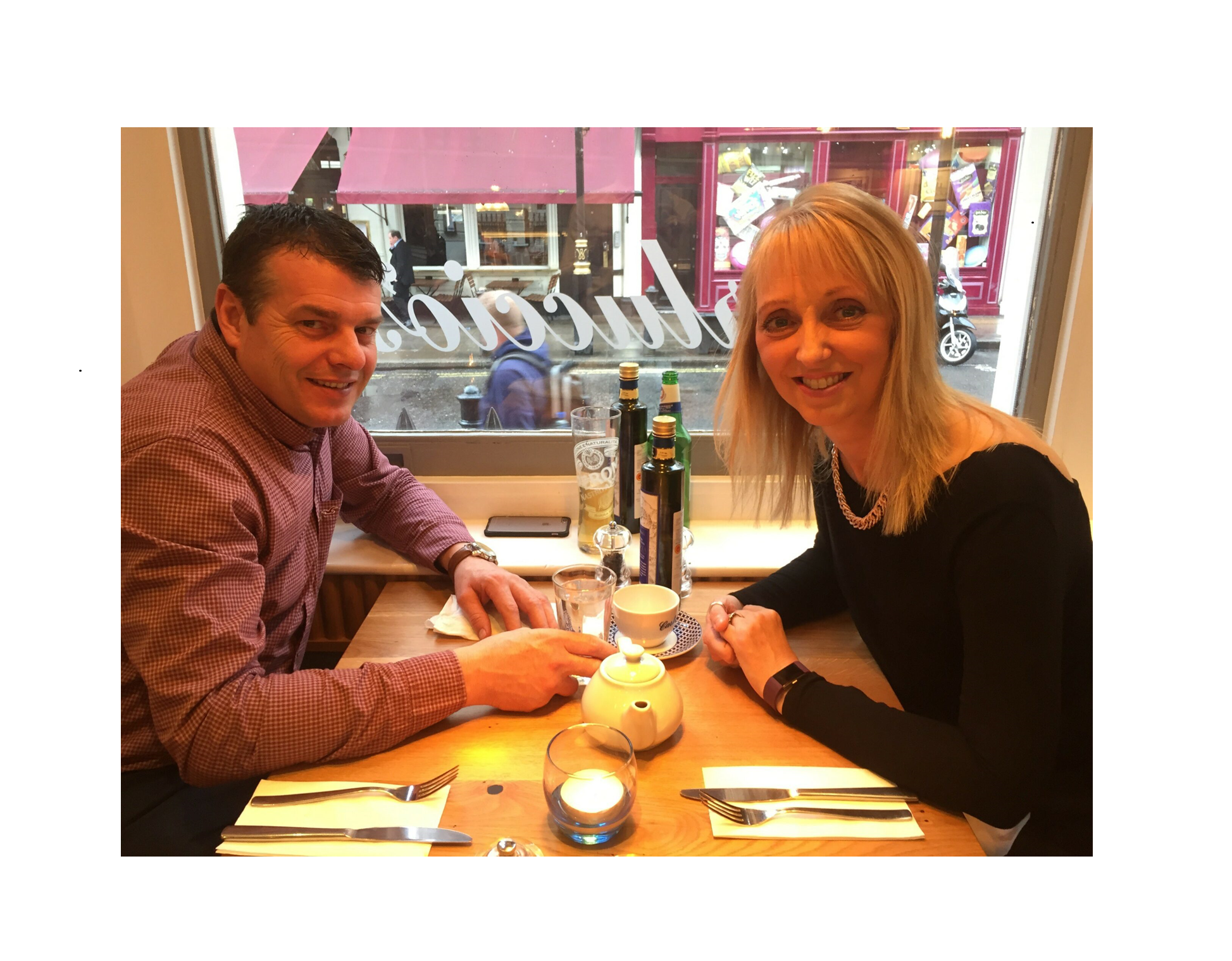
“Our foster daughters can focus on their future without worrying about losing each other.”
Annette & Andrew – TACT Foster Carers since 2017
London & The South
My husband Andrew comes from a family who frequently cared for young disabled residents as his elder sister was a nurse. My mother-in-law subsequently became attached to one girl who she eventually ended up offering respite weekends to. Therefore, as a teenager Andrew was already familiar with caring for others, so the idea of fostering made a lot of sense for us.
When one day I picked up a fostering leaflet in the local doctor’s surgery, and started to think about the idea, Andrew wasn’t at all spooked. We were both in our early 30’s with a young son and daughter aged 6 and 8. After years in central Peterborough we were enjoying a lovely rural life in a village house with a large garden and lots of animals. I felt very lucky to be where we were and wanted to share that with children who had been less fortunate. The decision was as simple as that.
Before joining TACT, we fostered for Peterborough City Council for 18 years. Our first placement was a little bit of a shock as it came as a sibling group of three young boys aged 6, 7 and 9. Our home suddenly became very alive and full of laughter and sunny days in the garden with happy faces and group fun. My children have always brought their friends home, so if you have two or three children in the garden then why not have five or six! Cooking and dishing up seven hot meals was tricky to start with but it brought Andrew and I together as we both needed to be hands on with five under 10’s to supervise.
Seeing how our own birth children helped these young boys over the years was so endearing and rewarding. We feel it has helped them to develop to be the well-rounded, caring young professionals that they are today. Our daughter is a Children’s Nurse and our son a Veterinary Surgeon.
We are currently fostering a sibling group of three children who have been with us for eight years this August. It is so important for them to be together. Contact with their birth mother is limited to just six hours a year, their father has passed away and there is no contact with extended family, so these girls really only have each other.
In any sibling group there will always be fall outs amongst them, but no matter what, they always look out for each other. The strength of belonging that they gain from living alongside each other shouldn’t be underestimated. They realise they are amongst the lucky ones who have managed to travel through the care system and maintain a sibling status. Sadly, it is not the case for many. Knowing they are placed on a permanency arrangement to remain together, enables them to focus on themselves. Now they can move forward educationally and focus on their future without worrying about the next day and losing each other.
Fostering has made us make time for ourselves. It has encouraged us to organise fun days out and to spend quality time together as a family. Andrew and I are both big on being active and outside; we love walking, cycling and sailing. We have travelled and have enjoyed taking our foster children with us and introducing them to new experiences.
Fostering can be an emotional and logistical roller coaster. During almost 20 years of fostering, we’ve taken children for respite placements whilst birth parent have been recovering from hospital treatments. Many young children come from neglected backgrounds, some having suffered emotional and/or physical abuse. We’ve collected several placements from the police station, and others arrive in the middle of the night with a social worker. We’ve had a young lad who was a run away and sleeping rough, a young Afghan lady who was escaping from an arranged marriage situation and had been beaten, and even refugees from Eritrea. Life’s never dull and that’s just the way I like it.
It is vital that as a foster carer you learn to be non-judgemental. Even when you hear what some children have endured, it is important to recognise the value of sustaining a relationship with birth parents, if it is still of great significance to the children. We fostered a sibling group of two; a boy and girl over a period of two years before they returned to their birth parent. Both were in a school play and I decided it would be beneficial for them to have their mother see it. It was difficult sitting with her in the school assembly hall, as she had visible facial bruising which was seemingly very interesting to the other village school mums, but I sat with her, supporting her and displaying a united front. The faces on these two siblings throughout was a delight, I had given them a great gift and their mum too.
All these children touch you in so many ways. It’s amazing to see small little progress steps in how they handle their own personal situation, or milestones they achieve. They may test your patience sometimes, but when you drop them off at school, the backward glance to check that you’ve bothered to wait for them to get through the gates, knowing that your care is consistent, is just the warmest thing ever.
Bonds made in fostering can last a life time. Last year I received six Mother’s Day cards from former foster placements. Many still keep in touch and visit, some with their own offspring now.
Next year is our 20th anniversary as foster carers. We’ve come a long way in our journey and the early years were a learning curve. However, the support is always there and this is even more prevalent with TACT which offers around the clock support and a multitude of training courses to help you become the best carer you can be.




